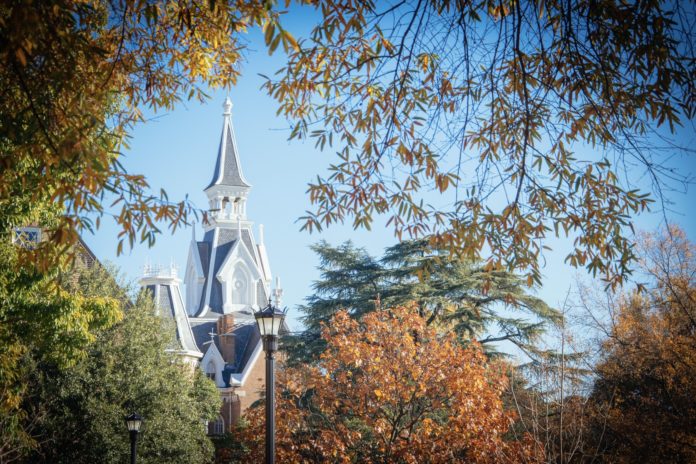The place where who one is intersects with what one does.
-President R. Kirby Godsey’s definition of “vocation”
It has been three years since University Commons initiated its Lilly Grant-funded Theological Exploration of Vocation. The idea behind this initiative is to help students recognize their life’s calling in light of their faith, education and abilities.
University Commons’ Dean Dee Bratcher said the Commons has worked to make “service and [the] reflection of that service a part of students’ education” by working to provide students with experiences of diversity in the community. Bratcher believes service-learning helps students “see outside of themselves, see the needs of the community, begin to take on identity and have a sense of competence and ability to affect change.”
“That is what being a Mercerian is all about,” stresses everyone associated with the Commons. Producing good citizens has always been a distinct vision of Mercer; the Commons hopes to strengthen and renew that vision.
Bratcher explained that producing a “new generation of leaders and servers for church and society” must be a University-wide initiative; it must consist of Mercer’s “intellectual community at work, taking up a topic throughout the year.”
This summer, Dr. John Dunaway, Senior Fellow, University Commons, accomplished this by organizing a workshop entitled “Gladly Learn and Gladly Teach: Living Out One’s Calling in a Baptist University.” Richard Hughes, director of Pepperdine University’s Center for Faith and Learning, led discussions on the vocation of the Christian university, vocation of the Christian scholar, and how to share an understanding of vocation with students. Previous to the workshop, each participant was assigned five books to read on the topic of vocation.
“The greatest thing about [the workshop] was the bonding that went on among the colleagues. You don’t see each other in the same light again when you get to know one another on that deep a level,” said Dunaway. “The diversity of religious beliefs, disciplines and political ideologies really made the discussions quite profound. Everyone involved was kind, thoughtful and engaged in the conversation.”
Dr. Carol Goff agreed, saying it was “probably the most positive experience I’ve had at Mercer during the 14 years I’ve been here. It was a very stimulating experience. Dr. Hughes was outstanding, and the communication we had between all the colleagues was extraordinary.”
Dunaway and the other participants look forward to the seven-session colloquium to be held on both the Mercer and Atlanta campuses in the fall. President Godsey will speak at the first one on Sept. 23 in the President’s Dining Room on the Macon campus. Students and faculty are encouraged to attend.










